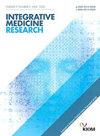Prompt engineering for generative artificial intelligence chatbots in health research: A practical guide for traditional, complementary, and integrative medicine researchers
IF 3
4区 医学
Q2 INTEGRATIVE & COMPLEMENTARY MEDICINE
引用次数: 0
Abstract
Generative artificial intelligence (GenAI) chatbots powered by large language models (LLMs) are increasingly used in health research to support a range of academic and clinical activities. While increasingly adopted in biomedical research, their application in traditional, complementary, and integrative medicine (TCIM) remains underexplored. TCIM presents unique challenges, including complex interventions, culturally embedded practices, and variable terminology. This article provides a practical, evidence-informed guide to help TCIM researchers engage responsibly with GenAI chatbots through prompt engineering, the design of clear, structured, and purposeful prompts to improve output relevance and accuracy. The guide outlines strategies to tailor GenAI chatbot interactions to the methodological and epistemological diversity of TCIM. It presents use cases across the research process, including research question development, study design, literature searches, selection of reporting guidelines and appraisal tools, quantitative and qualitative analysis, writing and dissemination, and implementation planning. For each stage, the guide offers examples and best practices while emphasizing that AI-generated content should always serve as a starting point, not a final product, and must be reviewed and verified using credible sources. Potential risks such as hallucinated outputs, embedded bias, and ethical challenges are discussed, particularly in culturally sensitive contexts. Transparency in GenAI chatbot use and researcher accountability are emphasized as essential principles. While GenAI chatbots can expand access to research support and foster innovation in TCIM, they cannot substitute for critical thinking, methodological rigour, or domain-specific expertise. Used responsibly, GenAI chatbots can augment human judgment and contribute meaningfully to the evolution of TCIM scholarship.
健康研究中生成式人工智能聊天机器人的快速工程:传统、补充和综合医学研究人员的实用指南
由大型语言模型(llm)驱动的生成式人工智能(GenAI)聊天机器人越来越多地用于健康研究,以支持一系列学术和临床活动。虽然越来越多地用于生物医学研究,但它们在传统、补充和综合医学(TCIM)中的应用仍未得到充分探索。TCIM提出了独特的挑战,包括复杂的干预、文化嵌入的实践和可变的术语。本文提供了一个实用的、有证据的指南,帮助TCIM研究人员通过快速工程、设计清晰、结构化和有目的的提示来负责任地参与GenAI聊天机器人,以提高输出的相关性和准确性。该指南概述了定制GenAI聊天机器人交互的策略,以适应TCIM的方法论和认识论多样性。它展示了整个研究过程中的用例,包括研究问题开发、研究设计、文献检索、报告指南和评估工具的选择、定量和定性分析、写作和传播以及实施计划。对于每个阶段,指南都提供了示例和最佳实践,同时强调人工智能生成的内容应始终作为起点,而不是最终产品,并且必须使用可靠的来源进行审查和验证。潜在的风险,如幻觉输出,嵌入式偏见和伦理挑战进行了讨论,特别是在文化敏感的背景下。GenAI聊天机器人使用的透明度和研究人员的问责制被强调为基本原则。虽然GenAI聊天机器人可以扩大获得研究支持的机会,并促进TCIM的创新,但它们不能取代批判性思维、方法论的严密性或特定领域的专业知识。负责任地使用GenAI聊天机器人可以增强人类的判断力,并为TCIM学术的发展做出有意义的贡献。
本文章由计算机程序翻译,如有差异,请以英文原文为准。
求助全文
约1分钟内获得全文
求助全文
来源期刊

Integrative Medicine Research
Medicine-Complementary and Alternative Medicine
CiteScore
6.50
自引率
2.90%
发文量
65
审稿时长
12 weeks
期刊介绍:
Integrative Medicine Research (IMR) is a quarterly, peer-reviewed journal focused on scientific research for integrative medicine including traditional medicine (emphasis on acupuncture and herbal medicine), complementary and alternative medicine, and systems medicine. The journal includes papers on basic research, clinical research, methodology, theory, computational analysis and modelling, topical reviews, medical history, education and policy based on physiology, pathology, diagnosis and the systems approach in the field of integrative medicine.
 求助内容:
求助内容: 应助结果提醒方式:
应助结果提醒方式:


